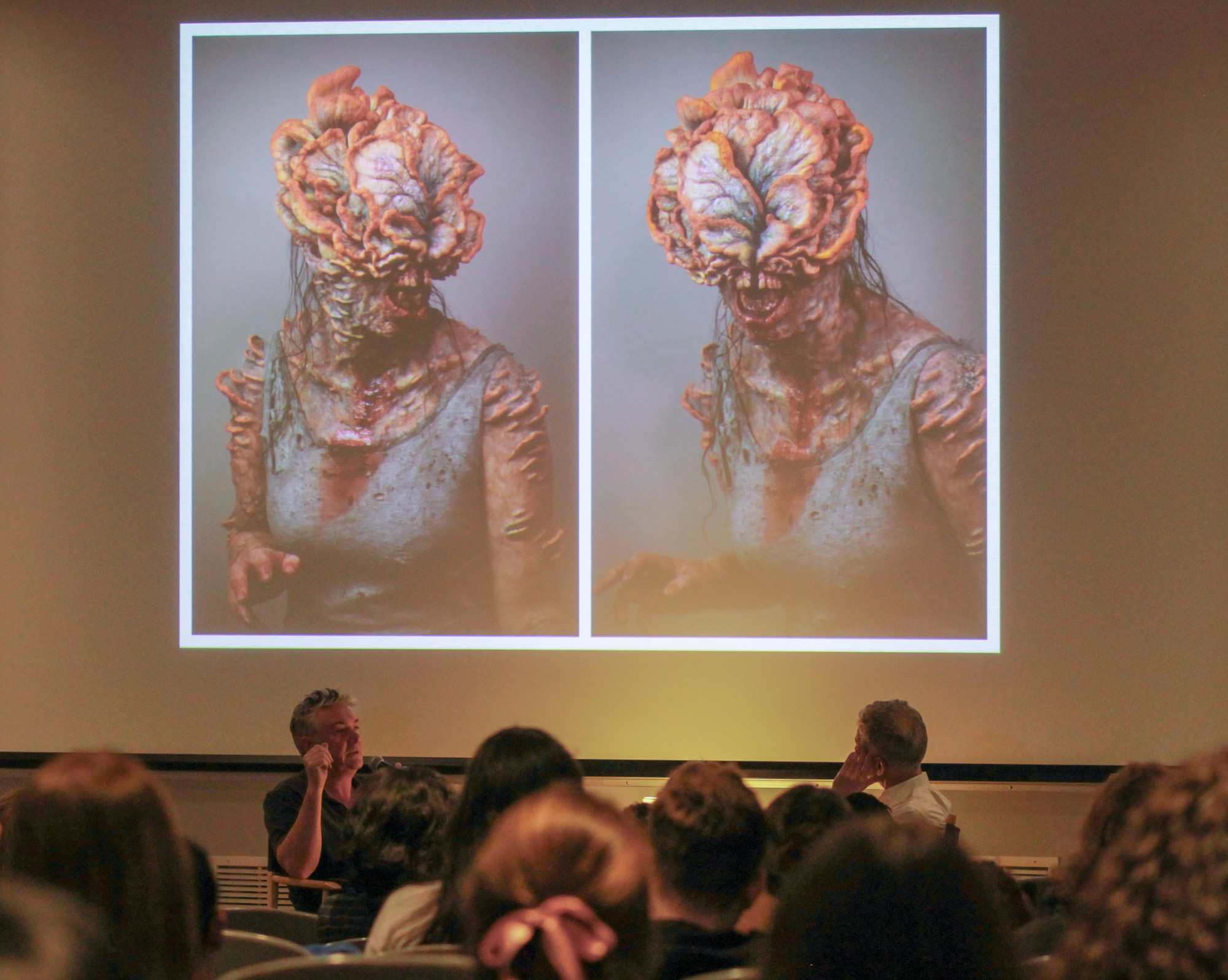Jeremy Webb made his first films — self-described “rip-offs” of horror films “Dracula,” “Frankenstein” and “Halloween” — when he was 13 years old. Now, he’s directing some of television’s biggest shows.
Webb visited Boston University’s College of Communication on Friday for a screening and discussion about his work in the television industry. His visit was part of the Department of Film and Television Cinemathèque series, a series of screenings and discussions with film and television professionals that provide insight into the industry.

Webb has directed episodes of more than a dozen television series — including “The Punisher,” “Downton Abbey,” “Doctor Who,” “The Umbrella Academy” and most recently, “The Last of Us” — and has been nominated for a BAFTA Award and Primetime Emmy.
Tim Palmer, professor of the practice of cinematography in the department of film and television, who hosted the discussion with Webb, said that bringing in experts like Webb expands students’ perspectives beyond college and into the business of film and television.
“To bring in someone from the outside, who has achieved a remarkable degree of success in the field that the students aspire to work in, will add a much greater dimension to the learning experience and help them to cement their ambitions and career ideas,” Palmer said.
Palmer attended film school with Webb, and the two have worked together professionally on multiple projects throughout their careers.
Palmer said Webb has worked “incredibly hard to get where he is” and that students can learn from his career path to guide their future successes.
The event began with a screening of Season 1, Episode 5 of HBO’s “The Last of Us,” titled “Endure and Survive,” which Webb directed.
Webb said he selected that episode to screen because he felt it was a good representation of “the planning and preparation throughout all the departments and how it all came together to create a sequence that I’m extraordinarily proud of.”
“I know that, as a show, we’re really proud of what we were able to achieve,” he said.
After the screening, Webb presented a slideshow of the behind-the-scenes planning of the episode’s grand finale, including storyboards, special effects, choreography, location planning and visual effects.
Webb wanted to demonstrate the television production process and that “although it all happens very fast, it is a result of a careful, painstakingly slow decision-making process over a period of about two and a half months.”
“It’s always good to hear from someone who is currently working,” said Daria Furrow, a junior in COM, “to know what to expect and can’t find in a textbook.”
After discussing his work in production, Webb talked about his career journey.
Webb said his career was not a straight path: He originally wanted to become an actor, then ended up working in sales. He didn’t decide to pursue directing until his then-girlfriend gave him some advice while he was working as a bartender in a ski resort in the Alps.
“She said, ‘If you could do anything, what would you do?’ That made me really think,” Webb said. “I said, ‘Well, I’d be a film and television director.’ She said, ‘Well, why don’t you go back and do that?’”
From there, he worked his way up through the industry, from runner all the way to a director, without the benefit of knowing anyone at the start.
Webb’s story resonated with Furrow, who said her favorite part of the event was hearing how Webb was not handed success, but found it by “working those low-level PA jobs, networking and building those connections” on his own.
Finding success in the film and television industry can seem “almost like an impossible thing to achieve … until you can finally make it,” Webb said.
“It’s really important to feed back the experiences that you’ve had getting to where you’ve got, to try and inspire and try and help guide people trying to get into the industry,” he said.
Webb’s advice to aspiring filmmakers is “to get busy.” He said that with the advantage of modern technology like iPhones, “there’s no excuse not to make [a] film.”
But his biggest piece of advice for anyone who aspires to work in film or television is to follow their gut.
“My advice is if you’ve got an inkling to go and do it,” Webb said, “go and do it.”
























































































































